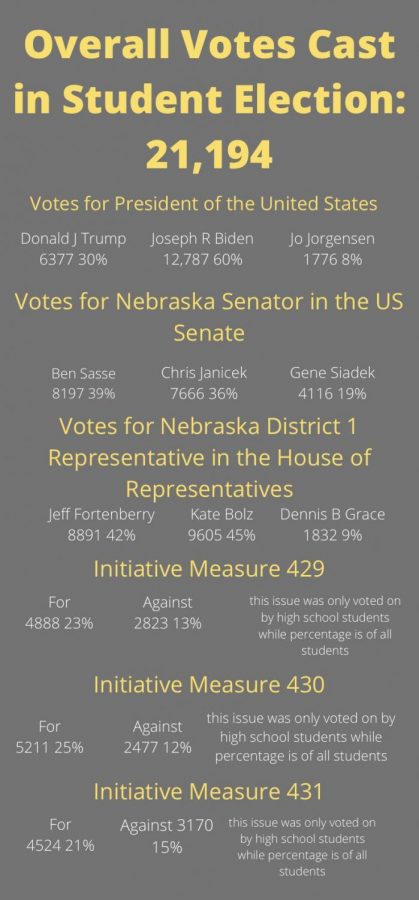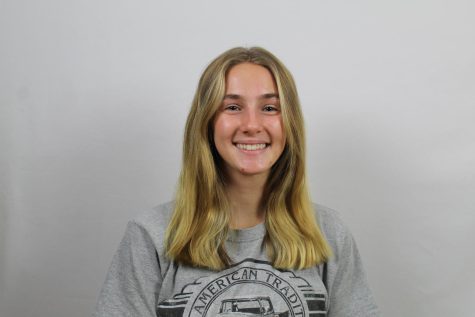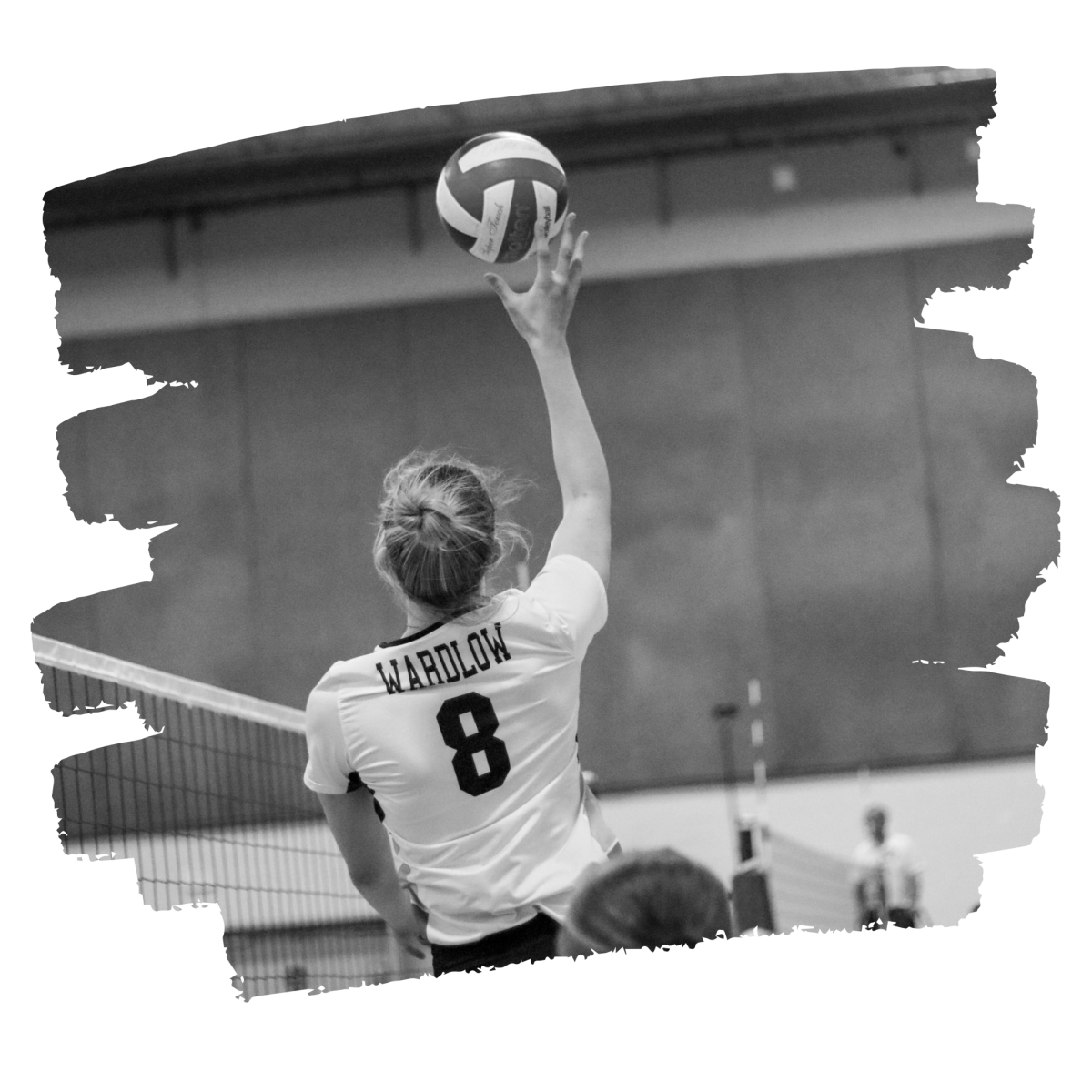Biden wins LPS Student Vote by wide margin
November 3, 2020
21,194 students headed to the polls for a mock election on Thursday, Oct. 29. All of Lincoln Public Schools (LPS) were involved, in addition to Raymond Central, Lincoln Christian, and Malcolm Public Schools.
Votes were cast for President of the U.S., Nebraska Senator of the U.S. Senate, Nebraska District 1 Representative in the House of Representatives, and a set of three ballot initiatives, that if passed, would allow for expanded gambling in Nebraska and use some of the proceeds for property tax relief.
The final statistics for President of the U.S. ended with Democratic presidential nominee Joe Biden winning 60 percent of the votes, Republican nominee Donald Trump winning 30 percent and Liberatarian nominee Jo Jorgensen winning 8 percent.
All LPS schools favored Biden with the exception of Wysong and Kloefkorn elementary schools which swung towards Trump. It was the schools outside of LPS–Lincoln Christian, Raymond Central, Malcolm Public Schools– where Trump won by large margins with 88, 77, and 72 percent respectively.
At Lincoln Southeast (LSE), 1225 votes were cast, the results similar to the overall LPS number: Biden won 63 percent of votes, while Trump and Jorgensen claimed 30 and 6 percent.
LSE Government and Politics teacher David Nebel says this mock election encourages many good habits when it comes to students doing their part once they become voting age.
“The hope is that by giving students the opportunity to participate in the student vote it will help instill in them essential civic virtues that will make them more likely to participate as adults, ” Nebel said.
Lincoln School Board member Annie Mumgaard also thinks that the election has many benefits and opportunities for minors to effectively use their voice without the ability to actually vote.
“Even though you may not get the lessons directly in class, the discussion around having the vote and the discussion with parents afterwards is still really good about raising good civic awareness,” Mumgaard said. “And our goal is that we want you to be a citizen that can do good for the community, so learning how to vote is the biggest way to learn how to have a voice.”
On election day, Nov. 3, the results will most likely answer the big question of how Generation Z will impact this election. It is believed that younger people are much more interested in taking part because of recent events. Senior Elizabeth Herbin, who recently turned 18 voted in the Student Election, but also made sure to cast her real ballot as well as do much more to take part.
“I have been phone banking for candidates that I support as well as having hard conversations with family members and friends,” Herbin said. “I take this election very seriously and have been trying to get as many people to let their voice be heard through voting.”
Including the increased interest in politics by the younger majority, states across the country are reporting a high number of early voters and expect record numbers by the time the election is over.
“People show up to vote when they are not satisfied with the status quo. Polarizing candidates, a pandemic and the economic disruption that it brought, along with racial unrest have riled people up and motivated them to participate in the election,” Nebel said.
Herbin is pleased with the way her first election as a voter is shaping up, with so many people using their voice to help others.
“I’m so excited that this is the election that I get to vote in because there is so much on the line,” Herbin said.









